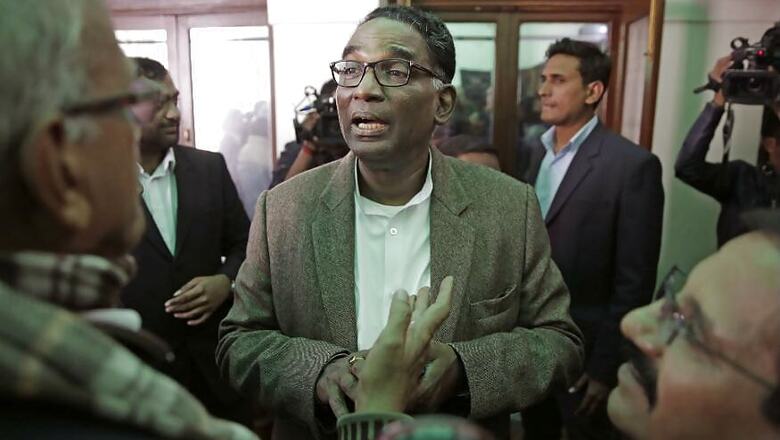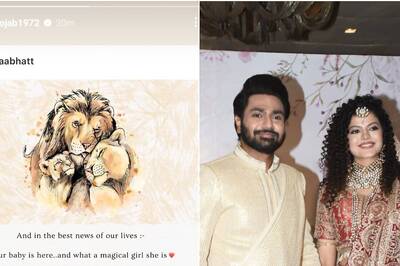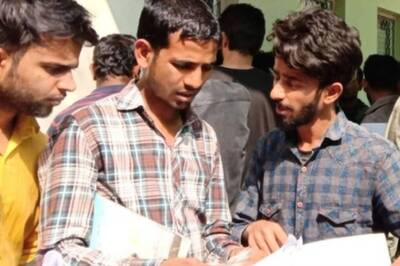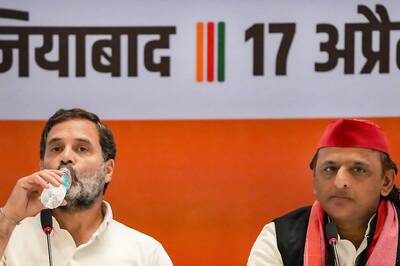
views
New Delhi: Reproaching the central government for its “impropriety” and “contumacious” attitude, Supreme Court’s most senior judge Justice J Chelameswar has cautioned that “bonhomie between the judiciary and the government in any state sounds the death knell to democracy”.
In his letter addressed to Chief Justice of India Dipak Misra, the judge has urged the CJI to constitute a full court to take up on the judicial side the issues pertaining to governmental interference in the judiciary’s domain and certain instances of “executive bidding” by a few judges.
CNN-News18 has exclusively accessed the letter.
The letter, copies of which have also been marked to the other 22 judges in the Supreme Court, finds its basis in a direct communication from the Law Ministry to the Chief Justice of Karnataka High Court regarding a Collegium recommendation.
Instead of elevating the judicial officer concerned as a judge in the HC or to write back to the Collegium in case of contentions, the Law Ministry wrote directly to Chief Justice of Karnataka HC Justice Dinesh Maheshwari for re-initiating an inquiry against the judicial officer. And the High Court chief justice obliged.
This decision was not only a clear departure from the outcome of a previous inquiry that had already cleared the judicial officer, but it also stalled the Collegium’s recommendation even though this was the second time his name was sent for elevation.
Describing the High Court chief justice as “more loyal than the King”, Justice Chelameswar wrote in the letter that the government “asking the HC to re-evaluate our recommendation in this matter has to be deemed improper and contumacious”.
“To my mind, I could recollect no instance from the past of the executive bypassing the Supreme Court, more particularly while its recommendations are pending, and asking the High Court, as if it were an interdepartmental matter, to look into the allegations already falsified and conclusively rejected by us,” said the judge, terming the government’s move as “unpredictable and unthinkable”.
Justice Chelameswar said that if the government had any reservations or misgivings about the judicial officer’s nomination, it could have sent back the recommendation for reconsideration by the Collegium.
“Instead, it sat tight on the file. In other words, our recommendation still retained its validity and legitimacy. For some time, our unhappy experience has been that the Government’s accepting our recommendations is an exception and sitting on them is the norm. Inconvenient but able judges or judges to be are being bypassed through this route,” the judge wrote to the CJI.
“We, the judges of the Supreme Court of India, are being accused of ceding our independence and our institutional integrity to the Executive’s incremental encroachment. The Executive is always impatient, and brooks no disobedience even of the judiciary if it can. Attempts were always made to treat the Chief Justices as the Departmental Heads in the Secretariat. So much for our independence and pre-eminence as a distinct State organ,” rued Justice Chelameswar.
He invoked Robert H Jackson’s assertion in United States vs Wunderlich 2 to state that men are more often bribed by their loyalties and ambitions than by money.
“Let us also not forget that the bonhomie between the judiciary and the government in any state sounds the death knell to democracy. We both are mutual watchdogs, so to say, not mutual admirers, much less constitutional cohorts,” said Justice Chelameswar.
The judge, who was among the four senior judges who held the unprecedented press conference in January targeting the CJI over allocation of sensitive cases to select benches, concluded his five-page letter by stating: “I am of the opinion that this matter is now ripe for the consideration of the Full Court on the judicial side, if this institution really is to be any more relevant in the scheme of the Constitution.”
CJI Misra has not yet replied to this letter.
The government, apart from score of recommendation for HC judges, has been sitting on two names for the apex court since January. One of them happens to be Justice KM Joseph, who had hit the headlines after a bench headed by him quashed the President's Rule in Uttarakhand in April 2016 and sharply criticised the manner in which the central rule was preferred by the governor in the state.



















Comments
0 comment